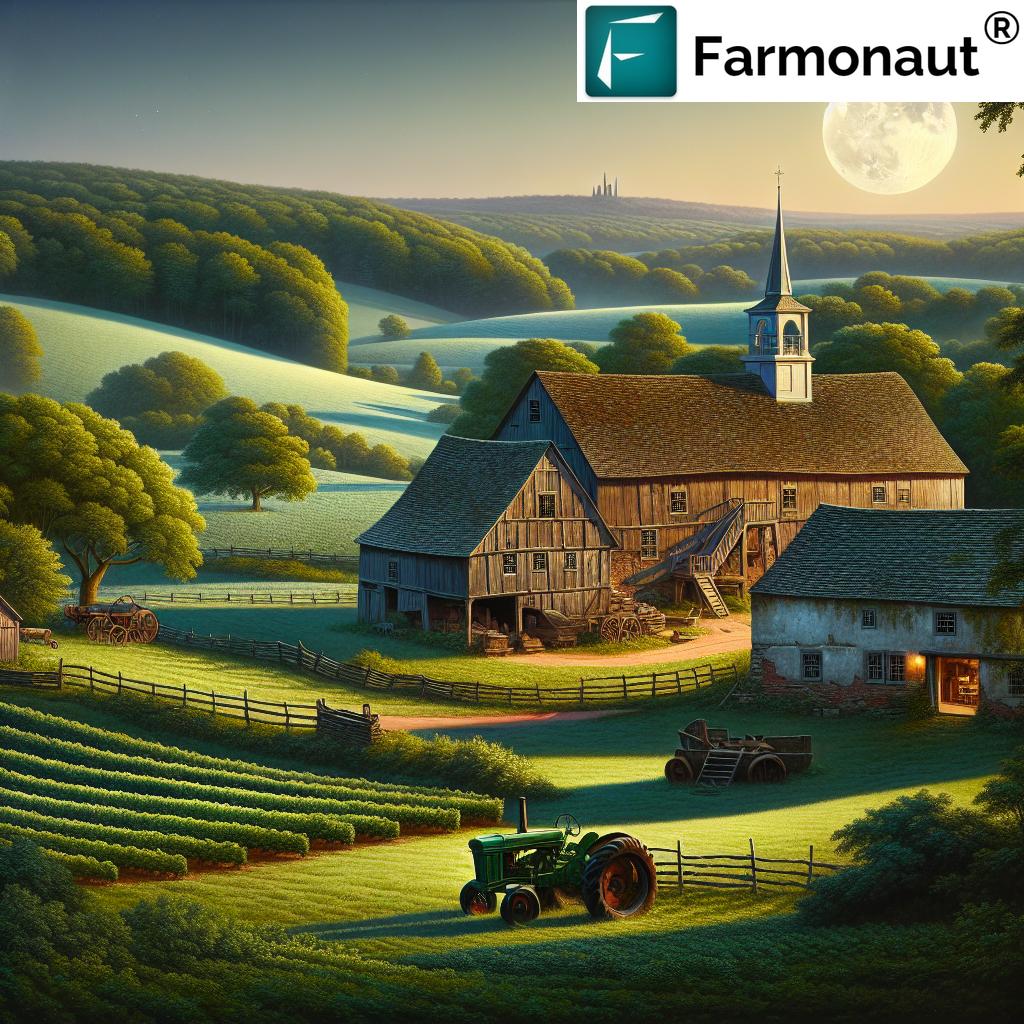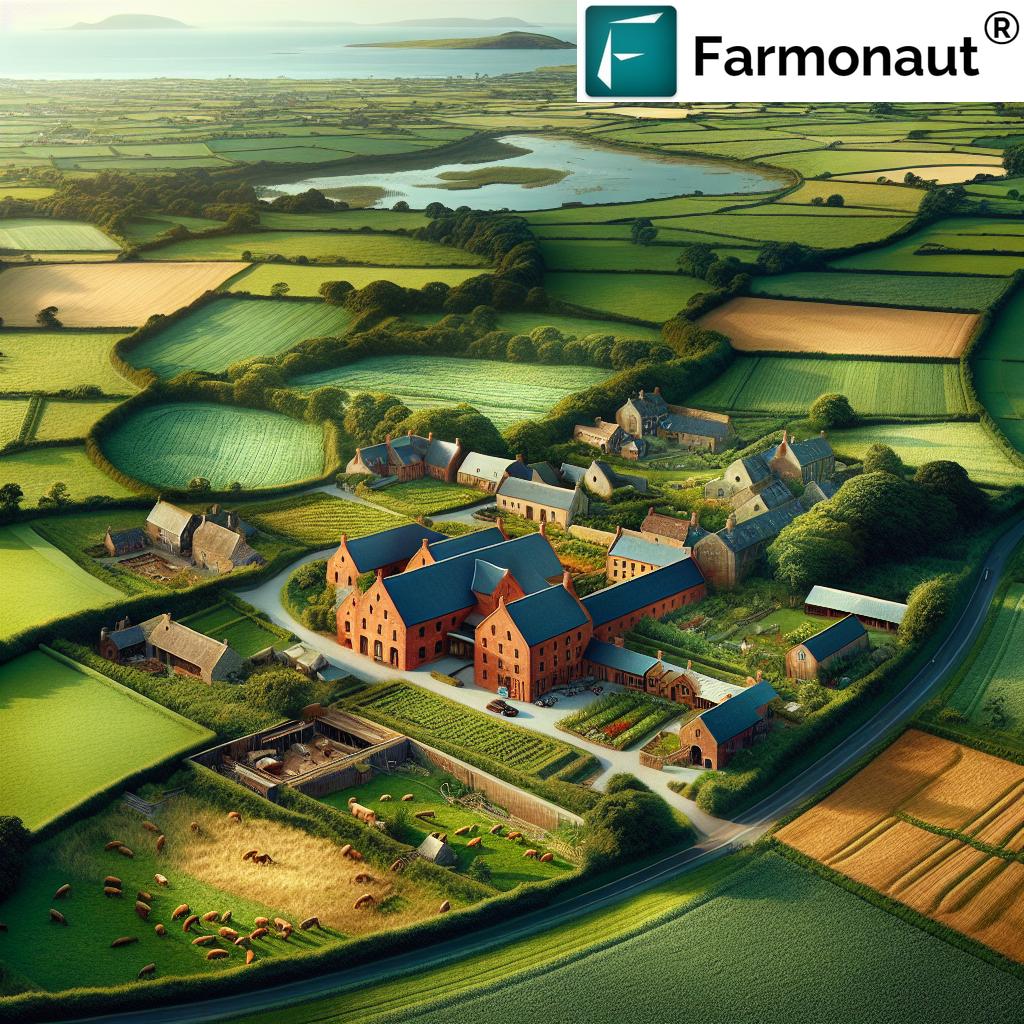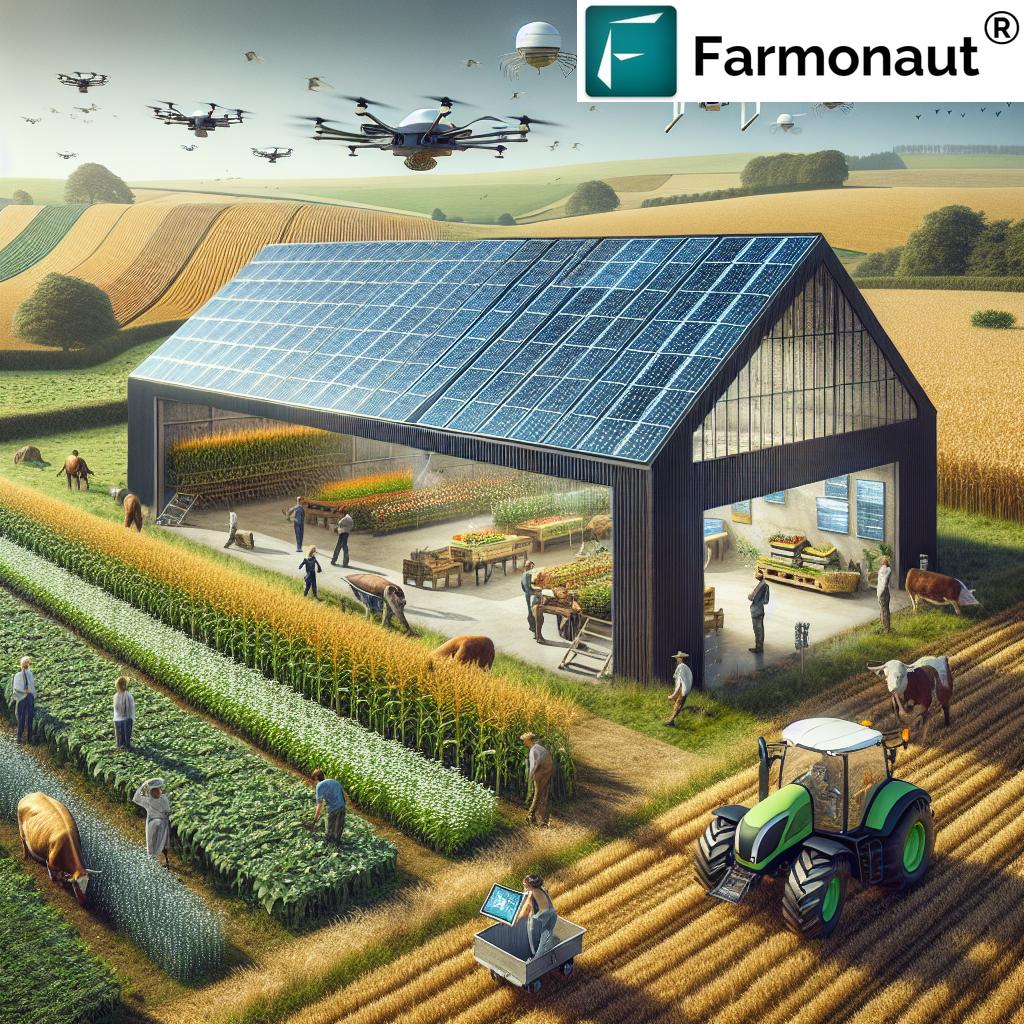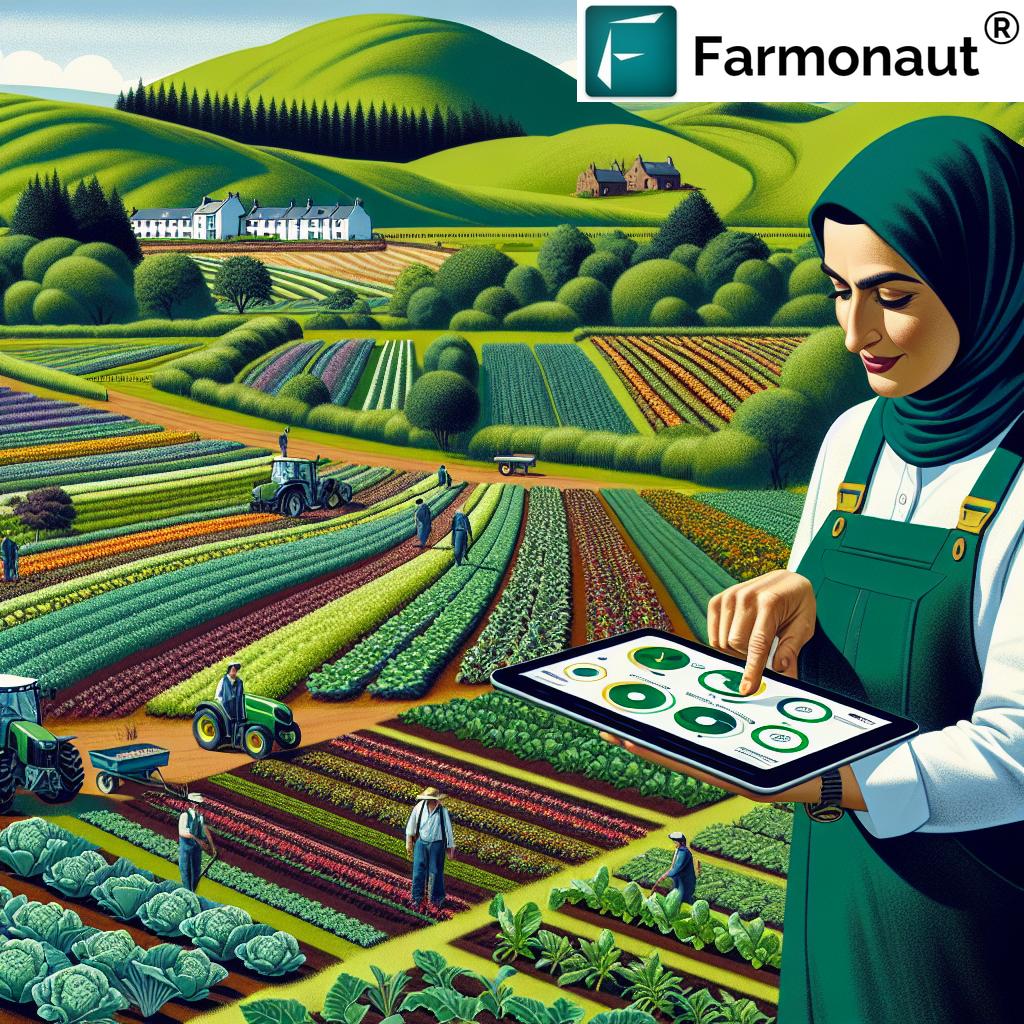Unveiling Frating Hall Farm: Essex’s Hidden Gem of Pacifist History and Sustainable Rural Living

“Frating Hall Farm, with Saxon origins, transformed into a pacifist community during World War II, spanning over 1000 years of history.”
Welcome to our journey through time and tradition as we explore the captivating story of Frating Hall Farm, a true hidden gem nestled in the heart of Essex’s picturesque countryside. As we delve into the rich tapestry of this historic farm’s past and present, we’ll uncover its significant role in England’s peace movement and its enduring legacy of sustainable rural living.
The Saxon Roots of Frating
Our tale begins in the mists of time, during the Saxon era, when Frating was first established as a settlement. The very name ‘Frating’ itself is a testament to its ancient origins, echoing through the centuries from its Saxon roots. This quaint village, with its small but historically significant population, has been a witness to the ebb and flow of English rural life for over a millennium.
As we explore the village of Frating, we’re immediately struck by how it encapsulates the essence of rural Essex. The village’s icons and signage proudly celebrate its agricultural heritage, particularly its former prominence in apple growing. This visual storytelling serves as a tangible link to the area’s rich farming traditions, reminding us of the vital role agriculture has played in shaping the identity of this corner of England.
A Journey Through Time: From Saxon Settlement to World War II Haven
To truly appreciate the significance of Frating Hall Farm, we must trace its evolution through the ages. Let’s take a look at a timeline that highlights key moments in its history:
| Year | Event/Significance |
|---|---|
| Saxon era (c. 5th-11th century) | Original settlement of Frating established |
| 12th century | Construction of Frating’s church, marking the village’s growing importance |
| 17th century | Construction of the historic barns at Frating Hall Farm |
| 1939-1945 | World War II: Transformation into a pacifist community |
| 1943-1954 | Peak period as a radical pacifist settlement |
| Post-war period | Evolution as a cultural hub for arts and literature |
| Present day | Example of sustainable rural living and agricultural heritage preservation |
This timeline not only showcases the longevity of Frating Hall Farm but also highlights its remarkable transformation from a traditional agricultural estate to a beacon of peace and sustainability.
The Architectural Marvel: 17th Century Barns
“The 17th-century barns at Frating Hall Farm have stood for approximately 400 years, witnessing centuries of agricultural evolution.”
As we wander the grounds of Frating Hall Farm, we’re immediately struck by the imposing presence of the 17th-century barns. These magnificent structures stand as silent sentinels, bearing witness to over four centuries of agricultural evolution. Their weathered timbers and time-worn stones tell a story of countless harvests, changing farming practices, and the enduring spirit of rural England.
These barns are not merely functional agricultural buildings; they are living pieces of history. Their architecture reflects the craftsmanship and ingenuity of our ancestors, showcasing the skilled work of carpenters and masons who built to last. Today, these barns serve as a tangible link to our agricultural heritage, reminding us of the importance of preserving such historic structures for future generations.
Frating Hall Farm: A Beacon of Peace in Turbulent Times
Perhaps the most fascinating chapter in Frating Hall Farm’s history began during the tumultuous years of World War II. As conflict raged across Europe, this quiet corner of Essex became a haven for those who sought a different path – one of peace and conscientious objection.
In 1943, Frating Hall Farm transformed into a radical pacifist settlement, offering a legal alternative to military service for conscientious objectors. This brave stance against the tide of war attracted individuals from all walks of life, including refugees and ex-prisoners of war, creating a diverse and vibrant community united in their commitment to non-violence.
The farm’s pacifist community was closely linked to significant figures in the peace movement, such as Vera Brittain and Dick Sheppard. These connections helped to solidify Frating Hall Farm’s place in the broader context of England’s peace movement, making it a crucial node in a network of like-minded individuals and organizations working towards a more peaceful world.
The Peace Pledge Union and Frating Hall Farm
To understand the significance of Frating Hall Farm’s role in the peace movement, we must look at the broader context of pacifism in 1930s and 1940s Britain. The Peace Pledge Union, founded in the 1930s, was at the forefront of this movement, attracting nearly 100,000 members who committed to non-violence and opposed war in all its forms.
Frating Hall Farm became a physical manifestation of these ideals. Under the leadership of individuals from the declining Adelphi Centre, another pacifist initiative, the farm evolved into a thriving community. At its peak, it housed over 50 individuals, creating a microcosm of the peaceful society they envisioned for the world at large.
A Cultural Hub in the Essex Countryside
What truly set Frating Hall Farm apart was its evolution beyond a mere agricultural settlement. As the community grew and flourished, it became a vibrant cultural hub, attracting artists, writers, and intellectuals from across the country. This transformation turned the farm into a beacon of creativity amidst the rural landscape of Essex.
The farm’s fields and barns became more than just places of agricultural labor; they were spaces for discourse, artistic expression, and the exchange of ideas. This unique blend of agrarian life and intellectual pursuits created an atmosphere that was both grounded in the earth and reaching for the stars.

Notable Figures and Their Impact
The story of Frating Hall Farm would not be complete without mentioning some of the notable individuals who were drawn to its unique atmosphere. One such person was Shirley Williams, who would later become a prominent Labour cabinet minister. Williams’ time working on the farm contributed significantly to her political activism and shaped her views on social justice and community.
The presence of such influential figures at Frating Hall Farm highlights the far-reaching impact of this seemingly quiet rural community. It serves as a reminder that great movements and ideas can often have humble beginnings in the most unexpected places.
The Legacy of Frating Hall Farm
While the collective existence of Frating Hall Farm as a pacifist community came to an end in 1954, its legacy continues to resonate. The farm’s transition to private ownership marked the end of an era, but the ideals and experiences of those who lived and worked there continue to inspire.
Today, Frating Hall Farm stands as a testament to the power of conviction and the enduring nature of peaceful ideals. Its history serves as a reminder of the important role that rural communities can play in shaping social movements and fostering alternative ways of living.
Sustainable Rural Living in the 21st Century
As we look at Frating Hall Farm today, we see not just a relic of the past, but a blueprint for sustainable rural living in the 21st century. The farm’s history of self-sufficiency and community-oriented living offers valuable lessons for modern agricultural practices and rural development.
In an era where sustainability and environmental consciousness are more important than ever, Frating Hall Farm’s example of harmonious coexistence with nature remains relevant. The farm’s approach to agriculture, which prioritized organic methods and respect for the land, aligns closely with contemporary movements towards sustainable farming practices.
Preserving Agricultural Heritage in the Digital Age
As we strive to preserve and learn from historic farms like Frating Hall, modern technology offers new tools to aid in this endeavor. Farmonaut, a pioneering agricultural technology company, provides innovative solutions that could help maintain and enhance such heritage sites while promoting sustainable farming practices.
Farmonaut’s satellite-based farm management solutions offer real-time crop health monitoring, AI-based advisory systems, and resource management tools. These technologies could be invaluable in preserving and managing historic farms, ensuring that they remain productive and sustainable for future generations.
The Wolf Moon: A Timeless Rural Landscape
As we conclude our journey through the history and significance of Frating Hall Farm, we’re reminded of the timeless beauty of the Essex countryside. The image of the farm’s fields bathed in the glow of the Wolf Moon, the first full moon of the year, evokes a sense of continuity and connection to the land that spans centuries.
This evocative scene encapsulates the enduring appeal of rural England – a landscape shaped by generations of farmers, dreamers, and visionaries. It reminds us that places like Frating Hall Farm are not just relics of the past, but living, breathing parts of our cultural and agricultural heritage.
Conclusion: A Legacy of Peace and Sustainability
As we reflect on the rich history of Frating Hall Farm, we’re struck by its remarkable journey from Saxon settlement to pacifist community to modern exemplar of sustainable rural living. This hidden gem in the heart of Essex serves as a powerful reminder of the impact that small communities can have on the wider world.
The legacy of Frating Hall Farm challenges us to think differently about our relationship with the land, our communities, and our values. It stands as a testament to the enduring power of idealism and the importance of preserving our agricultural heritage.
As we look to the future, we can draw inspiration from the story of Frating Hall Farm. Its history of peace, community, and sustainable living offers valuable lessons for addressing the challenges of our time. By embracing innovative technologies like those offered by Farmonaut, we can ensure that historic farms like Frating Hall continue to thrive and inspire for generations to come.
In the end, Frating Hall Farm is more than just a piece of history – it’s a living example of how our past can inform our present and shape our future. As we face the challenges of the 21st century, the spirit of Frating Hall Farm – its commitment to peace, community, and sustainable living – continues to light the way forward.
FAQs
- What is the historical significance of Frating Hall Farm?
Frating Hall Farm has roots dating back to the Saxon era and played a crucial role as a pacifist community during World War II. It later evolved into a cultural hub for arts and literature. - How did Frating Hall Farm contribute to the peace movement?
During World War II, the farm became a haven for conscientious objectors, offering agricultural work as an alternative to military service. It was closely linked to significant figures in the peace movement. - What architectural features make Frating Hall Farm unique?
The farm boasts 17th-century barns that have stood for approximately 400 years, showcasing the agricultural heritage of Essex. - How has Frating Hall Farm adapted to modern sustainable farming practices?
While specific details about current practices are not provided, the farm’s history of self-sufficiency and community-oriented living offers valuable lessons for modern sustainable agriculture. - Can visitors explore Frating Hall Farm today?
The blog post doesn’t specify current visiting arrangements. Interested parties should check with local tourism offices or the farm’s management for up-to-date information on public access.
Earn With Farmonaut: Affiliate Program
Earn 20% recurring commission with Farmonaut’s affiliate program by sharing your promo code and helping farmers save 10%. Onboard 10 Elite farmers monthly to earn a minimum of $148,000 annually—start now and grow your income!
















